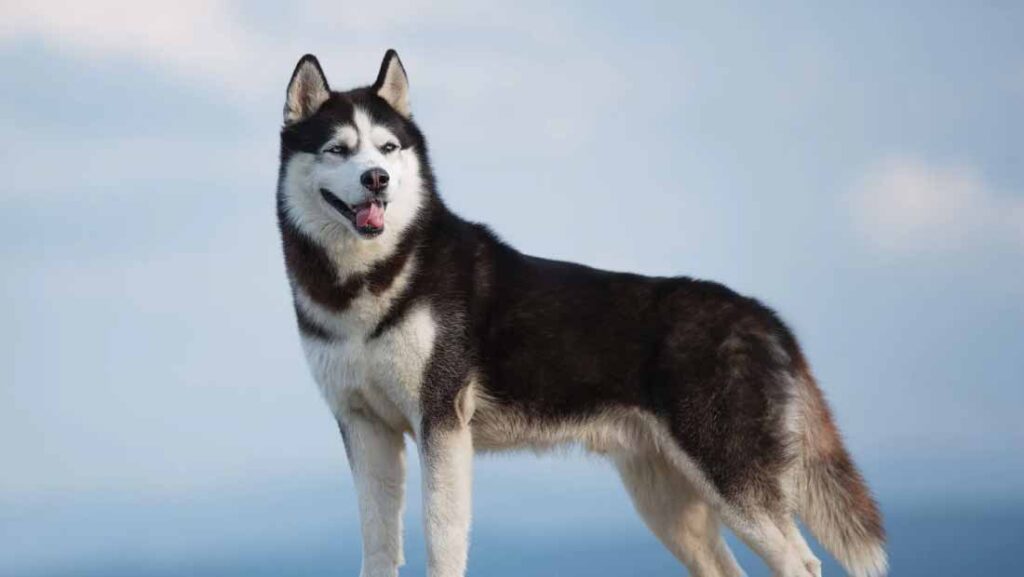Caring for a Husky dog is a rewarding task but one that requires commitment and knowledge. These beautiful canines are known for their bushy coat and energetic spirit. If you’re considering adopting one of these furry companions, or already have one in your life, it’s critical to understand their specific needs to ensure their happiness and well-being. In this article, I’ll walk you through all the essentials of caring for a Husky dog, from feeding and exercising to health and training. Get ready to become an expert in caring for these wonderful canines!
Food and Nutrition
Maintaining a proper diet is crucial to your Husky’s health. Here are some key tips:
Balanced Feeding
Make sure your Husky’s diet includes high-quality protein, healthy fats, and carbohydrates. Look for foods specifically formulated for large, active breeds.
Portions Controlled – Caring for a Husky Dog
Avoid excess weight by controlling daily portions. Huskies can be prone to obesity, which can affect their long-term health.
Hydration
Always provide fresh water and make sure your Husky stays well hydrated, especially during exercise.
Exercise and Physical Activity
Huskies are known for their inexhaustible energy. Here are some guidelines to keep them active and happy:
Daily Walks – Caring for a Husky Dog
Take daily walks to meet your need for exploration and exercise. A bored Husky can become destructive.
Interactive Games
Play interactive games, such as searching or running together in a safe area, to stimulate your mind and body.
Headwork – Caring for a Husky Dog
Toy puzzles and obedience training are great for keeping your Husky mentally engaged.
Coat Care
The Husky’s distinctive coat requires special attention:
Regular brushing
Brush their coat at least twice a week to prevent knots from forming and remove loose hair.
Occasional baths – Caring for a Husky Dog
They do not need frequent baths. A bath every 2-3 months is enough to keep their coat clean.
Seasonal Change
During seasonal molting, increase the frequency of brushing to control the amount of loose hair in your home.
Health & Wellness
The health of your Husky is paramount. Here are some important guidelines:
Visits to the Veterinarian – Caring for a Husky Dog
Schedule regular checkups with your veterinarian to keep vaccinations and parasite control up to date.
Common Problems
Huskies can be prone to hip and eye problems. Be alert to symptoms and consult your veterinarian if you notice anything unusual.
Sterilization or Neuteration
Consider early spaying or neutering to prevent health problems and control reproduction.
Training and Socialization – Caring for a Husky Dog
Proper training is essential for harmonious coexistence. Here are some tips:
Early Socialization
Expose your Husky to diverse people, animals, and environments from an early age to avoid shyness or aggression.
Positive Reinforcement
Use positive reinforcement techniques, such as rewards and praise, rather than punishments, for training.
Patience and Consistency – Caring for a Husky Dog
Be patient and consistent in your workouts. Huskies can be stubborn, but with time and patience, they will learn.
Frequently asked questions
What is the ideal diet for a Husky?
The ideal diet for a Husky should include lean proteins, healthy fats, and quality carbohydrates. Look for foods formulated for large, active breeds.
How often should I brush my Husky?
Brush your Husky at least twice a week to prevent knots and remove loose hair. During seasonal molting, the frequency of brushing increases.
What are the common health problems in Huskies?
Huskies can be prone to hip and eye problems. It is important to schedule regular checkups with the veterinarian for proper care.
Do I need to train my Husky?
Yes, training is essential for harmonious coexistence. Use positive reinforcement techniques and be patient in the process.
Can I give my Husky frequent baths?
No, Huskies don’t need frequent baths. A bath every 2-3 months is enough to keep their coat clean.
What is the importance of early socialization?
Early socialization helps your Husky adapt to different situations and avoid behavioral problems in the future.
Conclusion
Caring for a Husky dog may seem challenging, but with the right knowledge and commitment, you can enjoy a fulfilling and lasting relationship with your faithful furry friend. Remember to maintain a balanced diet, provide regular exercise, take care of your coat and attend to your health needs. In addition, proper training and socialization are key to a happy Husky well adjusted to your family. Get ready to enjoy the company of this beautiful canine and create unforgettable memories together!


